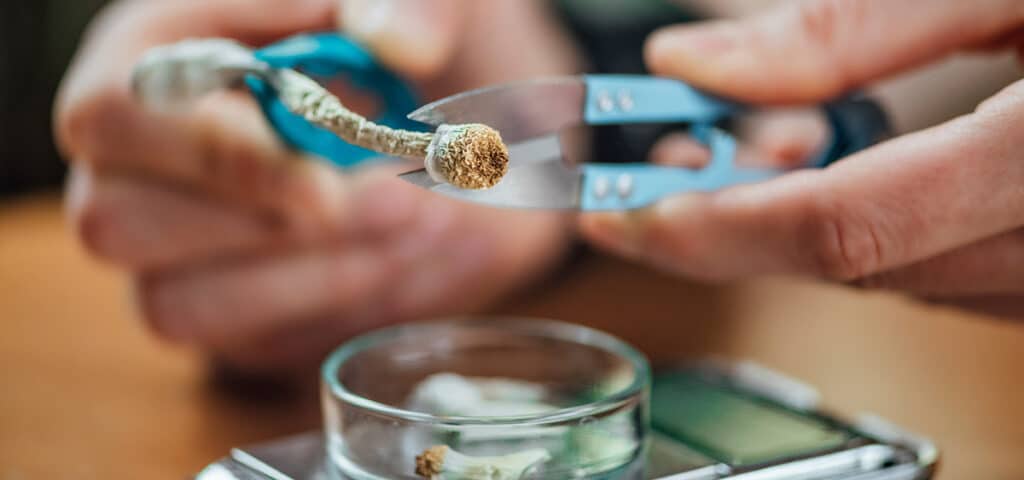Massachusetts voters rejected the state’s medical psychedelics legalization ballot initiative with 57% opposed and 43% in favor. The proposal sought to legalize the medical use of psilocybin, psilocin, dimethyltryptamine (DMT), ibogaine, and mescaline for patients aged 21+.
Massachusetts Voters Reject Medicinal Psychedelics Measure

Micro Dosing Alternative Therapy. Cutting Magic Mushroom and Making Daily Doses
Full story continued below.
Advertisement
Voters in Massachusetts on Tuesday rejected a measure to legalize medicinal psychedelics, the Associated Press reports. The measure failed 57% to 43%.
Opponents argued that the measure went too far by allowing would-be patients to grow psychedelic fungi and plants at home, while proponents said the measure would have opened a pathway for psychedelic therapies in treating depression, anxiety in cancer patients, post-traumatic stress disorder, and would have led to tax revenues derived from the industry.
According to AdImpact figures, Massachusetts for Mental Health Options, the ballot campaign, raised more than $7.5 million and spent nearly as much promoting the reforms, while the Coalition for Safe Communities, which opposed the measure, raised $107,000.
Voters in two states – Oregon in 2020 and Colorado in 2022 – have legalized psychedelics for medical use. In 2020, Washington, D.C. voters approved a measure that decriminalized psilocybin, psilocin, ayahuasca and mescaline.
The Massachusetts measure would have legalized psilocybin, psilocin, dimethyltryptamine (DMT), ibogaine, and mescaline for medical use for patients 21-and-older, but would have restricted access to those who could afford an expensive therapy session. The proposal would have allowed licensed “facilitators” to provide the psychedelics as part of a behavioral health or substance use disorder treatment. The substances are still considered a Schedule I drug under federal law, meaning they are defined as having “no accepted medical use.”
Get daily news insights in your inbox. Subscribe
End